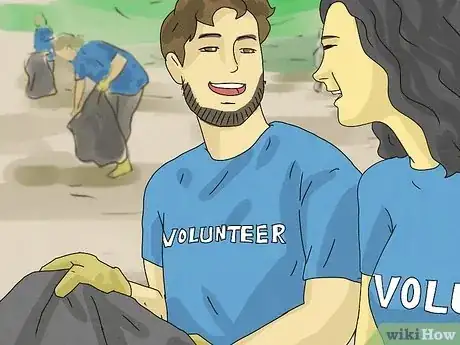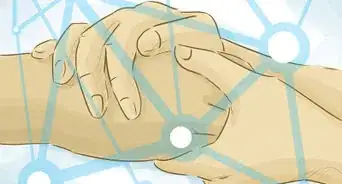This article was co-authored by Kelli Miller, LCSW, MSW and by wikiHow staff writer, Krysten Jackson. Kelli Miller is a Psychotherapist based in Los Angeles, California. Kelli specializes in individual and couples therapy focusing on relationships, depression, anxiety, sexuality, communication, parenting, and more. Kelli also facilitates groups for those struggling with alcohol and drug addiction as well as anger management groups. She is the author of “Professor Kelli’s Guide to Finding a Husband” and the award-winning and best-selling book “Thriving with ADHD”. Kelli co-hosted an advice show on LA Talk Radio and is a relationship expert for The Examiner. She received her MSW (Masters of Social Work) from the University of Pennsylvania and a BA in Sociology/Health from the University of Florida.
There are 9 references cited in this article, which can be found at the bottom of the page.
This article has been viewed 5,666 times.
When you love someone with low self-esteem, you want to help them recognize the wonderful qualities you see in them. Although healing from low self-esteem is personal for your partner, you can still support them through their journey. With care, patience, and authenticity, you can help your partner start to feel better. Read on for the best tips for supporting someone with low self-esteem.
Things You Should Know
- Compliment and share your positive memories of your partner. Your perspective can help change theirs for the better.
- Try doing activities together, like volunteering or spending time outdoors. Let your partner know you enjoy being around them through your actions.
- Be careful not to shy away from uncomfortable conversations or ignore your own boundaries. Keep your relationship healthy with open communication.
Steps
References
- ↑ https://greatergood.berkeley.edu/article/item/the_six_keys_to_positive_communication
- ↑ https://www.nhs.uk/mental-health/self-help/tips-and-support/raise-low-self-esteem/
- ↑ https://caps.umich.edu/content/helping-someone-self-esteem
- ↑ https://extension.usu.edu/relationships/research/from-time-to-quality-time-making-every-moment-count
- ↑ https://caps.umich.edu/content/helping-someone-self-esteem
- ↑ https://www.wcsu.edu/community-engagement/benefits-of-volunteering/
- ↑ https://psychcentral.com/health/reasons-you-and-others-invalidate-your-emotional-experience
- ↑ https://counseling.dasa.ncsu.edu/resources/self-help-resources/self-esteem/
- ↑ https://www.researchgate.net/publication/23136165_Walking_on_Eggshells_How_Expressing_Relationship_Insecurities_Perpetuates_Them






































































Medical Disclaimer
The content of this article is not intended to be a substitute for professional medical advice, examination, diagnosis, or treatment. You should always contact your doctor or other qualified healthcare professional before starting, changing, or stopping any kind of health treatment.
Read More...